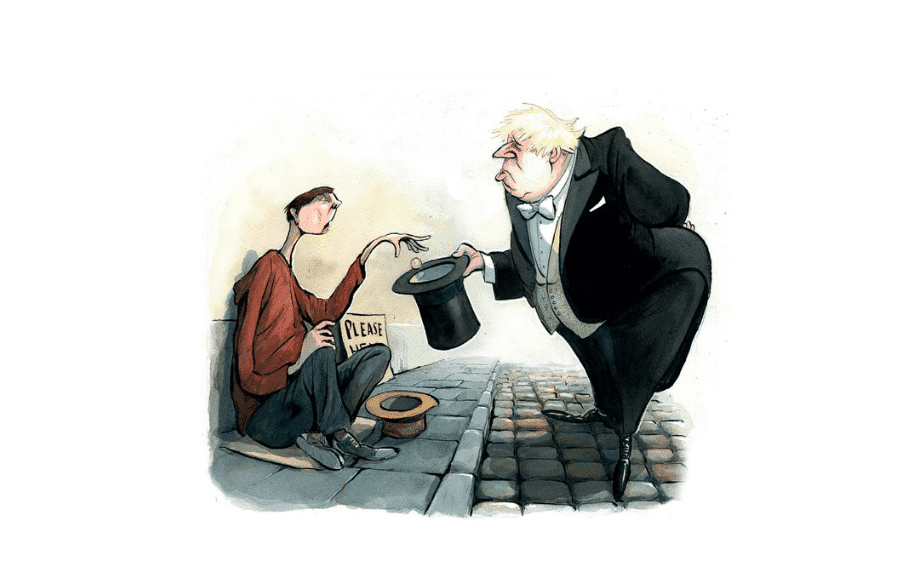If Boris Johnson is forced from office by his own MPs, partygate will only be part of the story. Another huge part of it will be his failure to appreciate the full scale of the cost of living crisis now washing over millions of households – especially his reluctance to address the issue of energy bills. Asked on his Indian trip whether he would consider removing the levies which make up around 25 per cent of electricity bills and around 4 per cent of gas bills he replied:
I want to do everything we can to alleviate the cost of living, but there is a lot of prejudice against the green agenda.
Relatively few electricity consumers, I fear, are aware yet of how levies on their bills are helping to line the pockets of the wealthy
Johnson’s refusal to consider scrapping green levies (or let’s call them taxes, because that is what they are) may go a long way to explaining why Steve Baker is now calling for the PM to go – Baker is one of the prime movers behind the Net Zero Scrutiny group of Conservative MPs, one of whose main demands is removing green taxes from bills. To waft it away as Johnson did has a touch of the Marie Antoinettes about it, and will reach far beyond the Net Zero Scrutiny group. There are a great number of Conservative MPs in Red Wall seats who are rather less interested in the PM’s green agenda rather than in their constituents being able to keep warm next winter.
Energy bills have already just risen by over 50 per cent. But there are many in the energy industry – not least the CEOs of power companies who gave evidence before MPs on Tuesday – who believe that there is an even bigger hike in prices awaiting consumers in October. The Prime Minister cannot do an awful lot in the short term about wholesale gas prices (although his green agenda has quite a lot to do with a lack of UK-produced gas) but there are two things the government could very easily do.
Firstly, it could remove the 5 per cent VAT from energy bills – which was, after all, cited by Johnson during the EU referendum campaign as a potential benefit of Brexit. Secondly, there are the green taxes. Officially known as ‘environmental and social levies’, these cover such things as contracts to subsidise wind and solar farms, the Climate Change Levy which has to be paid by operators of gas-fired power stations, feed-in tariffs paid to householders with photovoltaic panels on their roofs and insulation schemes designed to help low-income homeowners improved the energy performance – and thereby help to reduce the heating bills – of their homes.
You can argue the merits or demerits of each of these programmes, but whatever your view of their desirability, they do not have to be paid for via taxes on consumers’ bills. Some or all of them could be transferred to general government spending. There, at least, they would be funded through progressive taxation. Funding then through taxes on energy bills, on the other hand, is highly regressive. The burden falls most heavily on homeowners who live in drafty old homes heated by electric fires. Many wealthy homeowners, on the other hand, are net recipients of the government’s green agenda. Homeowners who had the capital to fit solar panels to their homes when subsidies were at their highest are enjoying feed-in tariff payments in excess of £2,000 a year (to declare an interest, I am one of them). Some are also receiving even larger payments through something called the Renewable Heat Incentive, which makes annual payments to people with heat pumps and biomass boilers.
Relatively few electricity consumers, I fear, are aware yet of how levies on their bills are helping to line the pockets of the wealthy. But as energy bills mushroom this year, it is inevitably going to become a lot better known. If Boris Johnson does not address this issue now it is enough on its own to bring about his downfall.







Comments